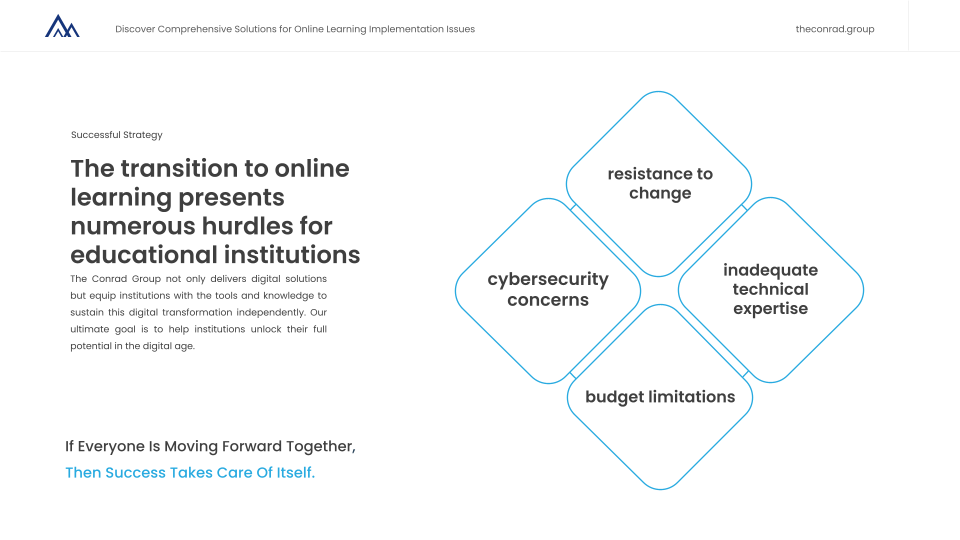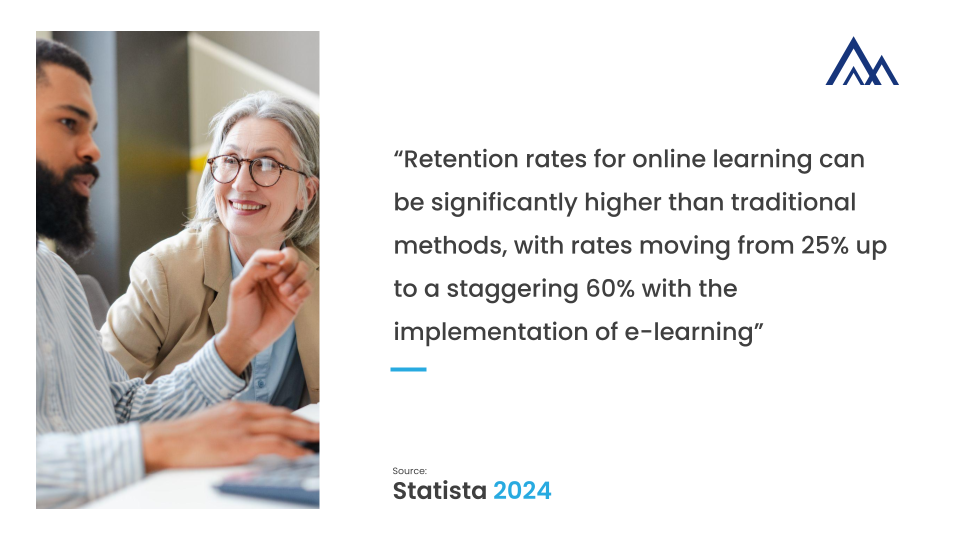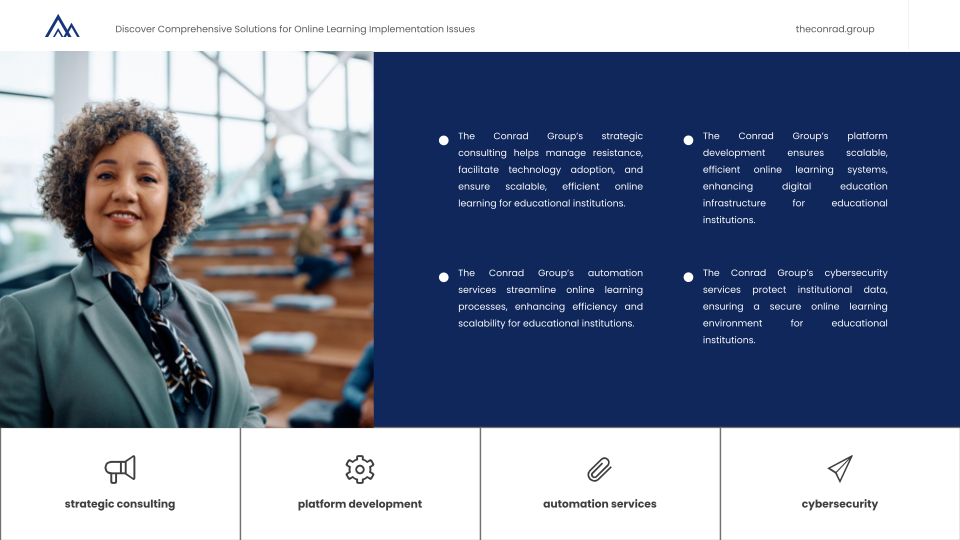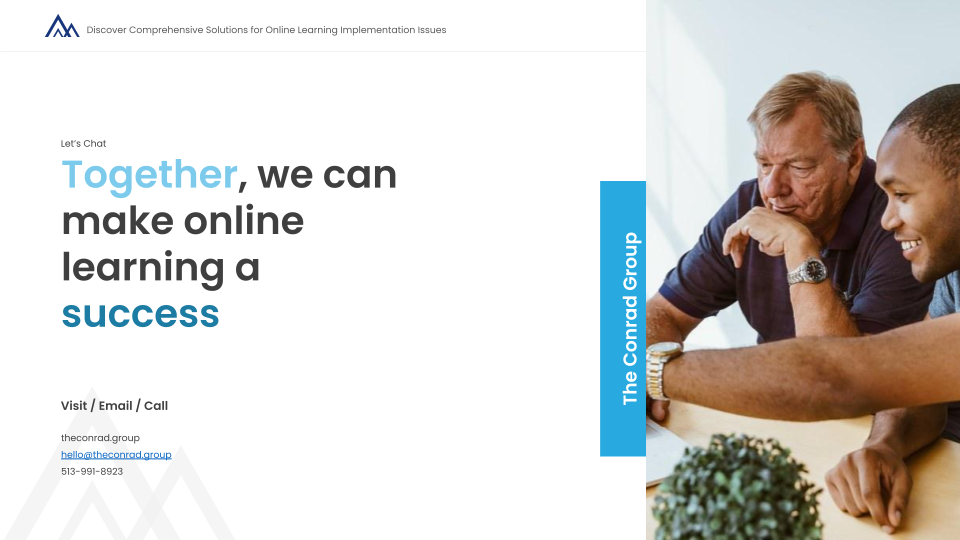
Discover Comprehensive Solutions for Online Learning Implementation Issues
Transitioning to online learning presents significant challenges for educational institutions, from educator resistance and technical proficiency gaps to budget constraints and cybersecurity threats. This in-depth post explores these hurdles and offers practical solutions for overcoming them. Learn how The Conrad Group can help you manage resistance, enhance technical support, ensure cybersecurity
Overview of Online Learning Implementation Issues
The transition to online learning presents numerous hurdles for educational institutions. These challenges include resistance to change, inadequate technical expertise, budget limitations, and cybersecurity concerns. These issues can affect the successful implementation and scalability of online learning programs.

Dealing with Resistance from Educators
One of the primary challenges is resistance from educators. Teachers and faculty members accustomed to traditional teaching methods may find it difficult to adapt to digital platforms. This resistance can stem from a lack of familiarity with technology or a distrust in the effectiveness of online teaching.
Overcoming Lack of Technical Proficiency
A significant gap in technical proficiency among staff and students can hinder online learning. Institutions may struggle with inadequate training programs or lack the necessary IT support to facilitate effective digital education.
Financial Barriers in Implementing Online Learning
Budget limitations are a prevalent issue. The cost of developing and maintaining online platforms, updating digital content, and providing the necessary infrastructure can be prohibitive, especially for institutions already facing financial constraints.
Cybersecurity Challenges in a Digital Environment
As educational institutions adopt online learning, they become vulnerable to cybersecurity threats. Protecting sensitive data and maintaining a secure online environment is crucial but challenging, particularly with limited resources.

Enhancing Student Engagement Online
Keeping students engaged in a virtual classroom is another significant challenge. Unlike traditional classrooms, online environments require innovative strategies to maintain student interest and participation, such as interactive content and regular feedback mechanisms.
Transforming Traditional Courses for Online Learning
Adapting traditional curricula to an online format is not a straightforward task. The need to redesign courses to be effective in a virtual setting requires substantial effort in content development and pedagogical adjustments.
Academic Integrity in an Online Setting
Maintaining academic integrity online is complex. Issues such as cheating during assessments and ensuring the originality of student work are heightened in a digital environment, necessitating robust evaluation tools and proctoring solutions.
Challenges in Scaling Online Programs
Scalability is a challenge, particularly as educational institutions grow their online offerings. The need for a scalable and robust learning management system (LMS) that can handle increasing enrollments without compromising quality is critical.
How The Conrad Group Can Help

The Conrad Group offers a comprehensive suite of services to address these challenges. Their strategic consulting can help manage resistance and facilitate technology adoption among faculty. Platform development and automation services ensure scalable and efficient online learning. Faculty training and technical support bridge the proficiency gap, while their emphasis on cybersecurity protects institutional data. Additionally, their quality assurance and user experience design can significantly enhance student engagement and course effectiveness.
In conclusion, while online learning presents various challenges, efficient solutions are available to navigate these hurdles. The Conrad Group’s expertise can play a pivotal role in implementing or scaling successful online learning programs.




